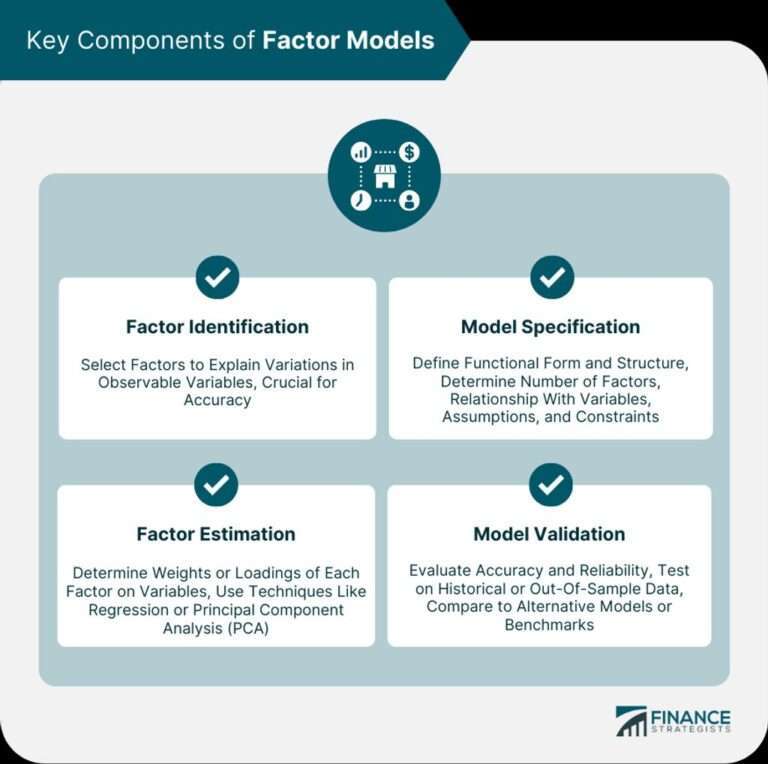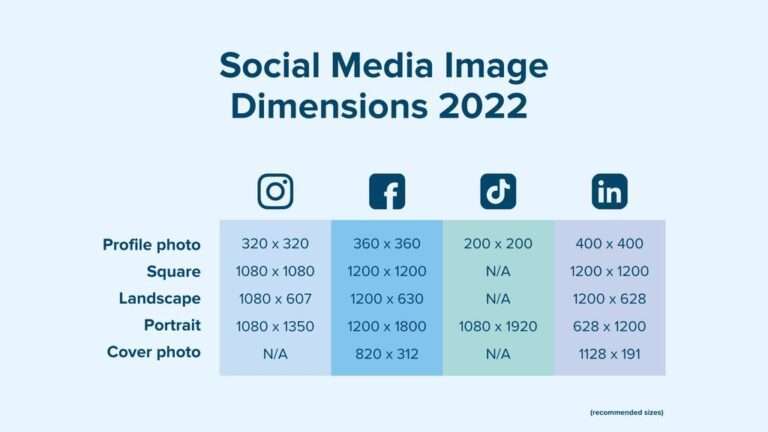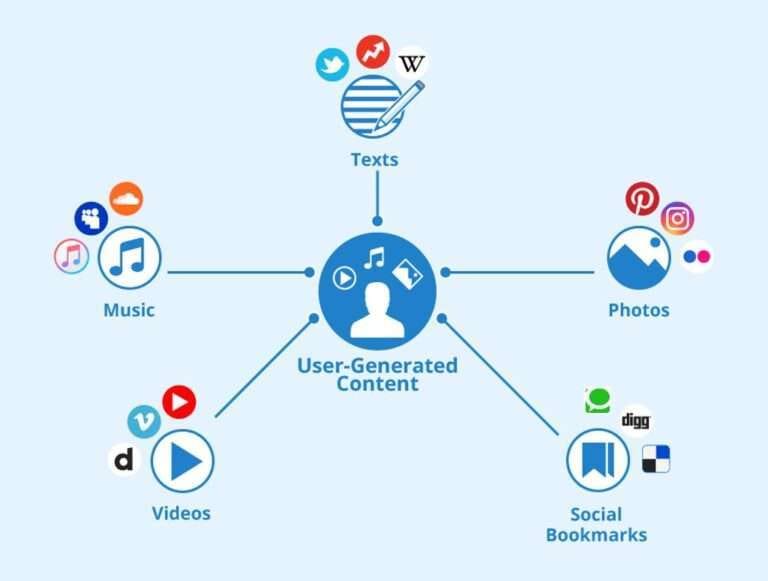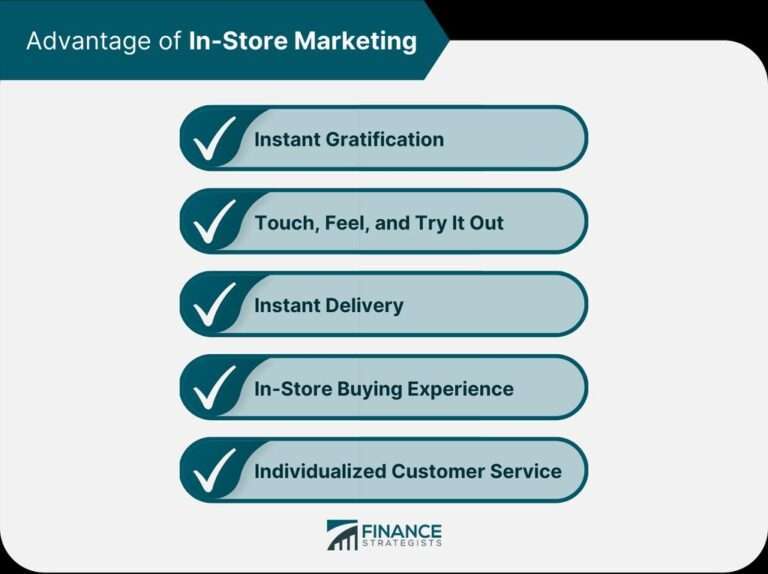What is Content Management?

Content management refers to the process of creating, organizing, and managing digital content, such as text, images, videos, and more, to deliver a consistent message across various online channels. It not only involves the creation and publication of content but also encompasses its maintenance, updates, and optimization.
The importance of content management in digital marketing cannot be overstated. It forms the foundation of any successful online marketing campaign, allowing businesses to effectively communicate their brand message, establish authority in their industry, and drive traffic and conversions.
Key components of content management include content creation, curation, distribution, and analysis. Businesses must develop a content strategy that aligns with their marketing goals and target audience, ensuring that the content produced is relevant, valuable, and engaging.
When it comes to digital marketing, there are various types of content that businesses can leverage to reach their audience. Blogs and articles provide an opportunity to share in-depth information and insights, while infographics and visual content capture attention and simplify complex concepts. Social media posts allow for quick and interactive communication, while email marketing content helps nurture leads and build customer relationships. Video content is also gaining popularity, as it allows for storytelling and engages viewers on multiple levels.
To effectively manage their content, businesses often rely on content management systems (CMS). These platforms provide the necessary tools and features to create, edit, organize, and publish content seamlessly. Understanding different CMS options and selecting the right one for your business is crucial to ensure efficient content management.
In this blog post, we will explore the concept of content management in digital marketing in more detail. We will delve into the different types of content that can be utilized, the role of content management systems, and best practices to optimize your content strategy. By understanding the importance of content management in digital marketing and implementing effective strategies, businesses can enhance their online presence, engage their audience, and achieve their marketing goals. So, let’s dive in and unlock the power of content management in digital marketing!
Introduction to Content Management: The Foundation of Digital Marketing
Content management serves as the foundation of digital marketing, providing businesses with the necessary framework to effectively create, organize, and distribute content across various online channels. In this section, we will delve into the concept of content management, its definition, and its importance in driving successful digital marketing campaigns.
Definition and Importance of Content Management
Content management can be defined as the process of creating, organizing, and managing digital content to deliver a consistent brand message and engage the target audience. It involves the strategic planning, creation, publication, and maintenance of content assets, ensuring that they align with the overall marketing goals and objectives.
The importance of content management in digital marketing cannot be overstated. Here are a few key reasons why it is crucial for businesses:
- Brand Consistency: Content management allows businesses to maintain a consistent brand identity across various online platforms. By ensuring that the tone, style, and messaging of the content align with the brand, businesses can strengthen their brand image and establish trust with their audience.
- Audience Engagement: Effective content management enables businesses to create valuable and engaging content that resonates with their target audience. By understanding their audience’s needs, preferences, and pain points, businesses can develop content that educates, entertains, and provides solutions, ultimately driving higher engagement and interaction.
- Search Engine Optimization (SEO): Content management plays a significant role in optimizing content for search engines. By incorporating relevant keywords, optimizing meta tags, and ensuring proper formatting and structure, businesses can improve their organic search rankings and attract more traffic to their website.
- Lead Generation and Conversion: Well-managed content helps businesses generate leads and convert them into customers. By strategically placing call-to-actions, providing valuable resources, and nurturing leads through informative content, businesses can guide their audience through the buyer’s journey and drive conversions.
Key Components of Content Management
Content management involves several key components that work together to ensure effective content creation, organization, and distribution. These components include:
- Content Strategy: Developing a content strategy is the first step in content management. It involves defining the goals, target audience, and key messages that the content will convey. A well-defined content strategy guides businesses in creating relevant and valuable content that aligns with their overall marketing objectives.
- Content Creation: This component focuses on creating high-quality and engaging content that resonates with the target audience. It involves conducting research, generating ideas, writing or producing the content, and ensuring it meets the brand’s standards and style guidelines.
- Content Organization: Organizing content involves categorizing, tagging, and structuring content assets for easy retrieval and management. This component ensures that content is organized in a logical and user-friendly manner, making it easier for both businesses and users to navigate and find the desired information.
- Content Distribution: Once the content is created and organized, it needs to be distributed across various digital channels, such as websites, social media platforms, email newsletters, and more. Content distribution involves selecting the appropriate channels, scheduling content, and optimizing it for each platform to maximize reach and engagement.
- Content Analysis: Analyzing the performance of content is crucial for measuring its effectiveness and making data-driven decisions. Content analysis involves monitoring key metrics, such as website traffic, engagement rates, conversions, and social media metrics. This component provides insights into what content works best and helps identify areas for improvement.
Understanding these key components of content management is essential for businesses to develop a comprehensive content strategy and effectively manage their digital marketing efforts.
In the next section, we will explore the various types of content that businesses can leverage in their digital marketing campaigns.
What is Content Management
Content management is a fundamental aspect of digital marketing that involves the creation, organization, and management of digital content. In this section, we will explore the definition and key components of content management in more detail.
Definition and Importance of Content Management
Content management can be defined as the process of creating, organizing, and managing digital content to deliver a consistent brand message and engage the target audience. It encompasses all the activities involved in planning, creating, publishing, and maintaining content assets across various online platforms.
The importance of content management in digital marketing cannot be overstated. Here are a few key reasons why it is crucial for businesses:
- Consistency: Content management ensures that businesses maintain a consistent brand image and messaging across their digital platforms. By organizing and controlling the content creation and publication process, businesses can ensure that their brand values, voice, and tone remain consistent, reinforcing their identity in the minds of their audience.
- Efficiency: Effective content management allows businesses to streamline their content creation and distribution processes. With proper organization and workflows in place, businesses can save time and resources by efficiently managing their content assets, avoiding duplication of efforts, and ensuring a smooth content production cycle.
- Engagement: Content management plays a pivotal role in engaging the target audience and driving meaningful interactions. By creating valuable, relevant, and engaging content, businesses can capture the attention of their audience, spark conversations, and build long-lasting relationships. Engaged users are more likely to become loyal customers and advocates for the brand.
- Optimization: Content management involves optimizing content for search engines, improving its visibility in search results, and driving organic traffic to the website. By incorporating relevant keywords, optimizing meta tags, and ensuring proper formatting and structure, businesses can enhance their online visibility, attract more visitors, and generate leads.
- Analytics and Insights: Content management allows businesses to track and analyze the performance of their content. By monitoring key metrics, such as website traffic, engagement rates, conversions, and social media metrics, businesses can gain valuable insights into what content is resonating with their audience and make data-driven decisions to improve their content strategies.
Key Components of Content Management
Content management encompasses several key components that work together to facilitate the effective management of digital content. These components include:
- Content Strategy: Developing a content strategy is the foundation of content management. It involves defining the goals, target audience, and key messages that the content will convey. A well-defined content strategy guides businesses in creating relevant and valuable content that aligns with their overall marketing objectives.
- Content Creation: This component focuses on creating high-quality and engaging content that resonates with the target audience. It involves conducting research, generating ideas, writing or producing the content, and ensuring it meets the brand’s standards and style guidelines.
- Content Organization: Organizing content involves categorizing, tagging, and structuring content assets for easy retrieval and management. This component ensures that content is organized in a logical and user-friendly manner, making it easier for both businesses and users to navigate and find the desired information.
- Content Distribution: Once the content is created and organized, it needs to be distributed across various digital channels, such as websites, social media platforms, email newsletters, and more. Content distribution involves selecting the appropriate channels, scheduling content, and optimizing it for each platform to maximize reach and engagement.
- Content Analysis: Analyzing the performance of content is crucial for measuring its effectiveness and making data-driven decisions. Content analysis involves monitoring key metrics, such as website traffic, engagement rates, conversions, and social media metrics. This component provides insights into what content works best and helps identify areas for improvement.
Understanding the key components of content management is essential for businesses to develop a comprehensive content strategy and effectively manage their digital marketing efforts.
In the next section, we will explore the different types of content that businesses can leverage in their digital marketing campaigns.
Types of Content in Digital Marketing
In digital marketing, there are various types of content that businesses can leverage to engage their audience, build brand awareness, and drive conversions. In this section, we will explore the different types of content and how they can be effectively utilized in digital marketing strategies.
Blogs and Articles
Blogs and articles are one of the most common and effective types of content in digital marketing. They allow businesses to provide in-depth information, insights, and solutions to their target audience. Blogs and articles can cover a wide range of topics related to the industry, trends, tips, and much more. They not only help establish businesses as thought leaders but also drive organic traffic to their websites through search engine optimization (SEO).
Infographics and Visual Content
Infographics and visual content are highly engaging and visually appealing forms of content. They present information in a visually appealing and easily digestible format, making complex concepts or data more understandable. Infographics combine text, images, and graphics to communicate information effectively. Visual content, such as images, illustrations, and videos, can capture attention quickly, evoke emotions, and enhance the overall user experience.
Social Media Posts
Social media platforms offer businesses an opportunity to connect and engage with their audience on a more casual and interactive level. Social media posts can include a variety of content formats, such as text, images, videos, and even live streams. They can be used to share updates, promotions, behind-the-scenes glimpses, customer stories, and more. Social media posts help businesses build brand awareness, foster community, and drive traffic to their websites.
Email Marketing Content
Email marketing remains a powerful tool for businesses to nurture leads and build customer relationships. Email marketing content can include newsletters, promotional offers, personalized recommendations, and educational resources. It allows businesses to stay in touch with their audience, provide valuable content directly to their inbox, and drive conversions by encouraging recipients to take action.
Video Content
Video content has gained immense popularity in recent years, thanks to the rise of platforms like YouTube and the increasing consumption of video content on social media. Videos can be used to tell stories, showcase products or services, provide tutorials, conduct interviews, and much more. They have the power to evoke emotions, capture attention, and convey messages in a dynamic and engaging manner.
By leveraging these different types of content, businesses can diversify their digital marketing strategies, cater to different audience preferences, and maximize their reach and engagement. It is important to understand the strengths and benefits of each content type and choose the ones that align with the business goals and resonate with the target audience.
In the next section, we will explore the role of content management systems (CMS) in digital marketing and how businesses can choose the right CMS for their needs.
Content Management Systems (CMS) in Digital Marketing
Content management systems (CMS) play a crucial role in digital marketing by providing businesses with the necessary tools and capabilities to effectively manage their content. In this section, we will explore the concept of content management systems, popular CMS options, and how to choose the right CMS for your business.
Understanding Content Management Systems
A content management system (CMS) is a software application or platform that enables businesses to create, edit, organize, and publish content on their websites or other digital channels. It provides a user-friendly interface that allows non-technical users to manage and update content without the need for extensive coding knowledge.
CMS platforms typically offer features such as content creation and editing tools, media management, user management, search functionality, and publishing capabilities. They streamline the content management process, allowing businesses to efficiently create, organize, and distribute content across various channels.
Popular Content Management Systems
There are several popular content management systems available in the market, each with its own strengths and features. Here are some of the most widely used CMS platforms:
- WordPress: WordPress is one of the most popular CMS platforms in the world. It is open-source and offers a user-friendly interface, a vast library of themes and plugins, and a strong community support. WordPress is highly customizable and can be used for various types of websites, from blogs to e-commerce stores.
- Drupal: Drupal is a robust and flexible CMS platform that is known for its scalability and security. It offers advanced content management features, multi-site capabilities, and a wide range of modules for customization. Drupal is suitable for large enterprises and complex websites that require high levels of customization and control.
- Joomla: Joomla is a user-friendly CMS platform that offers a balance between ease of use and flexibility. It provides a range of built-in features, such as content management, user management, and SEO capabilities. Joomla is suitable for small to medium-sized websites and can be easily extended with various extensions and templates.
- Magento: Magento is a specialized CMS platform designed for e-commerce websites. It offers a comprehensive set of features for managing products, orders, payments, and inventory. Magento is highly scalable and customizable, making it suitable for businesses of all sizes in the e-commerce industry.
How to Choose the Right CMS for Your Business
When selecting a CMS for your business, it is important to consider several factors:
- Ease of Use: Look for a CMS that offers a user-friendly interface and intuitive content management tools. This will ensure that your team can easily create, edit, and publish content without requiring extensive technical knowledge.
- Scalability: Consider your long-term business goals and choose a CMS that can scale as your business grows. Look for platforms that offer flexibility and can handle increasing content volumes and website traffic.
- Customization Options: Assess your customization needs and choose a CMS that offers the flexibility to tailor your website’s design and functionality. Look for platforms that provide a wide range of themes, templates, and plugins to match your specific requirements.
- Security: Ensure that the CMS platform you choose has robust security features and regular updates to protect your website from vulnerabilities and cyber threats.
- Support and Community: Consider the availability of support and a strong user community for the CMS platform. This will help you troubleshoot issues, find resources, and stay updated with the latest developments.
By carefully evaluating these factors, you can choose the right CMS that aligns with your business needs and supports your content management goals.
In the next section, we will explore best practices in content management to optimize your digital marketing efforts.
Best Practices in Content Management
Effective content management is crucial for achieving success in digital marketing. In this final section, we will explore some best practices that businesses can implement to optimize their content management strategies and maximize the impact of their digital marketing efforts.
Creating Quality and Relevant Content
One of the key best practices in content management is to focus on creating high-quality and relevant content. Understand your target audience’s needs, pain points, and preferences, and develop content that addresses those. Conduct thorough research, provide valuable insights, and ensure that your content is well-written, engaging, and informative. Quality content not only attracts and retains your audience but also helps establish your brand as a trusted authority in your industry.
SEO in Content Management
Implementing search engine optimization (SEO) techniques is essential for ensuring that your content is discoverable by search engines and drives organic traffic to your website. Conduct keyword research to identify relevant keywords and incorporate them naturally into your content. Optimize meta tags, headers, and URLs, and ensure that your content has a proper structure and formatting. Regularly monitor and analyze your SEO performance to identify opportunities for improvement and stay ahead of industry trends.
Consistency and Regular Updates
Consistency is key when it comes to content management. Develop a content calendar and stick to a regular posting schedule to maintain a consistent presence and keep your audience engaged. Regularly update and refresh your existing content to ensure its relevance and accuracy. Additionally, stay up to date with industry trends and news, and adjust your content strategy accordingly to provide the most current and valuable information to your audience.
Analyzing and Improving Your Content Strategy
Regularly analyze the performance of your content to gain insights into what works and what doesn’t. Monitor key metrics such as website traffic, engagement rates, conversions, and social media metrics. Identify patterns, trends, and areas for improvement. Use this data to refine and optimize your content strategy, focusing on creating more of what resonates with your audience and adjusting or eliminating content that underperforms.
User-Generated Content and Engagement
Encourage user-generated content and foster engagement with your audience. User-generated content, such as customer testimonials, reviews, and social media posts, adds credibility and authenticity to your brand. Engage with your audience through comments, messages, and social media interactions. Respond to feedback and address customer queries promptly. Building a strong relationship with your audience not only enhances brand loyalty but also generates valuable user-generated content that can be leveraged in your marketing efforts.
By implementing these best practices in content management, businesses can optimize their digital marketing strategies, enhance audience engagement, and achieve their marketing goals. Remember to continually evaluate and adapt your content management approach to stay abreast of industry changes and evolving consumer preferences.
With a solid understanding of content management in digital marketing and the implementation of effective strategies, businesses can unlock the full potential of their content and drive success in the digital landscape.








 العربية
العربية Čeština
Čeština Dansk
Dansk Nederlands
Nederlands English
English Suomi
Suomi Français
Français Deutsch
Deutsch Italiano
Italiano 日本語
日本語 한국어
한국어 Norsk bokmål
Norsk bokmål Polski
Polski Português
Português Русский
Русский Español
Español Svenska
Svenska